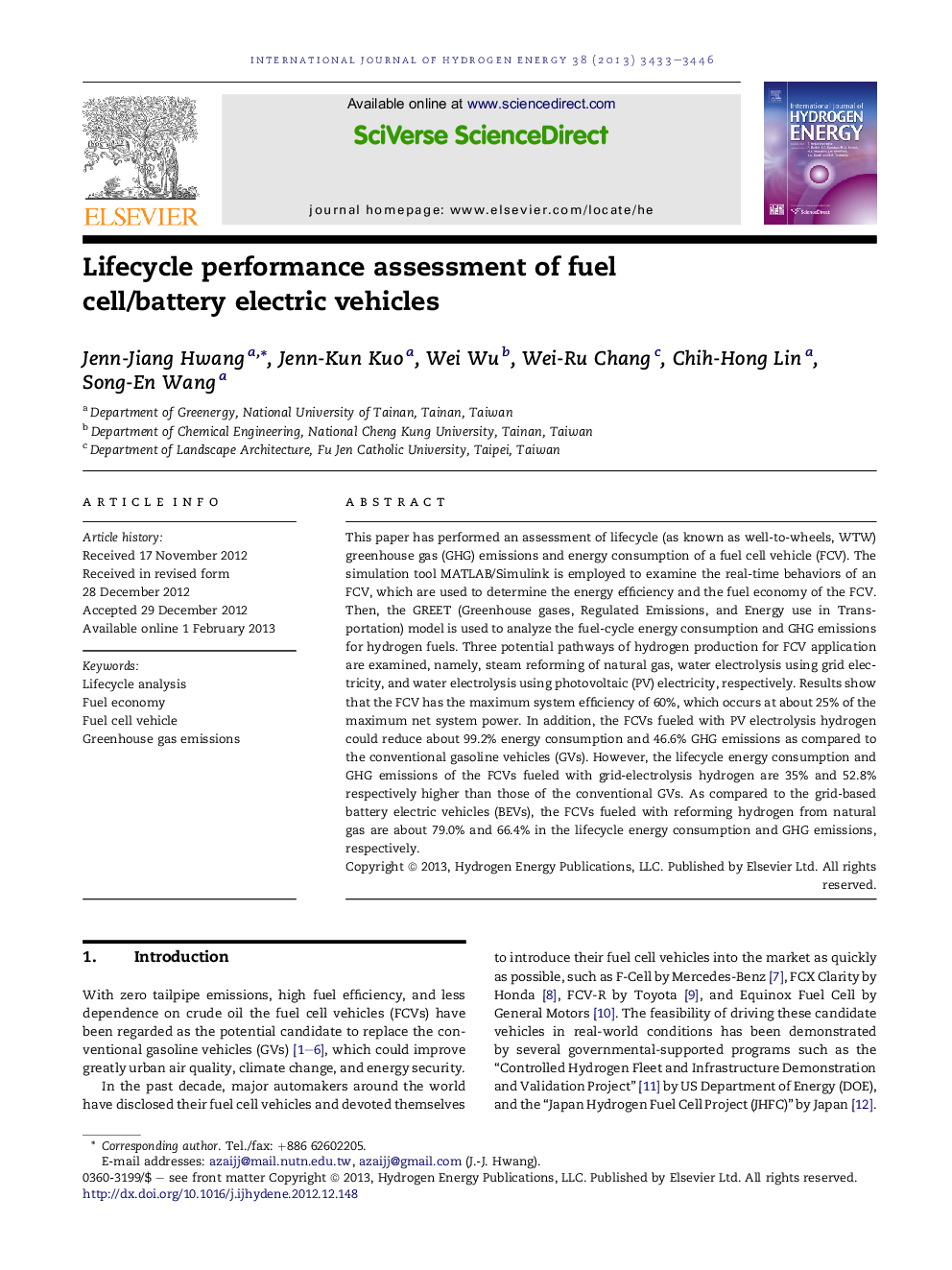| کد مقاله | کد نشریه | سال انتشار | مقاله انگلیسی | نسخه تمام متن |
|---|---|---|---|---|
| 1275761 | 1497537 | 2013 | 14 صفحه PDF | دانلود رایگان |

This paper has performed an assessment of lifecycle (as known as well-to-wheels, WTW) greenhouse gas (GHG) emissions and energy consumption of a fuel cell vehicle (FCV). The simulation tool MATLAB/Simulink is employed to examine the real-time behaviors of an FCV, which are used to determine the energy efficiency and the fuel economy of the FCV. Then, the GREET (Greenhouse gases, Regulated Emissions, and Energy use in Transportation) model is used to analyze the fuel-cycle energy consumption and GHG emissions for hydrogen fuels. Three potential pathways of hydrogen production for FCV application are examined, namely, steam reforming of natural gas, water electrolysis using grid electricity, and water electrolysis using photovoltaic (PV) electricity, respectively. Results show that the FCV has the maximum system efficiency of 60%, which occurs at about 25% of the maximum net system power. In addition, the FCVs fueled with PV electrolysis hydrogen could reduce about 99.2% energy consumption and 46.6% GHG emissions as compared to the conventional gasoline vehicles (GVs). However, the lifecycle energy consumption and GHG emissions of the FCVs fueled with grid-electrolysis hydrogen are 35% and 52.8% respectively higher than those of the conventional GVs. As compared to the grid-based battery electric vehicles (BEVs), the FCVs fueled with reforming hydrogen from natural gas are about 79.0% and 66.4% in the lifecycle energy consumption and GHG emissions, respectively.
► Fuel economies of FCVs and BEVs are about 65 MPG and 99 MPG, respectively.
► The maximum efficiency of FCVs is 60% at 25% of the maximum system power.
► FCVs with solar H2 show the highest ability in dismissing energy and GHG impacts.
► FCVs with NG-reforming-H2 are better than BEVs in energy usage and GHG emissions.
Journal: International Journal of Hydrogen Energy - Volume 38, Issue 8, 19 March 2013, Pages 3433–3446